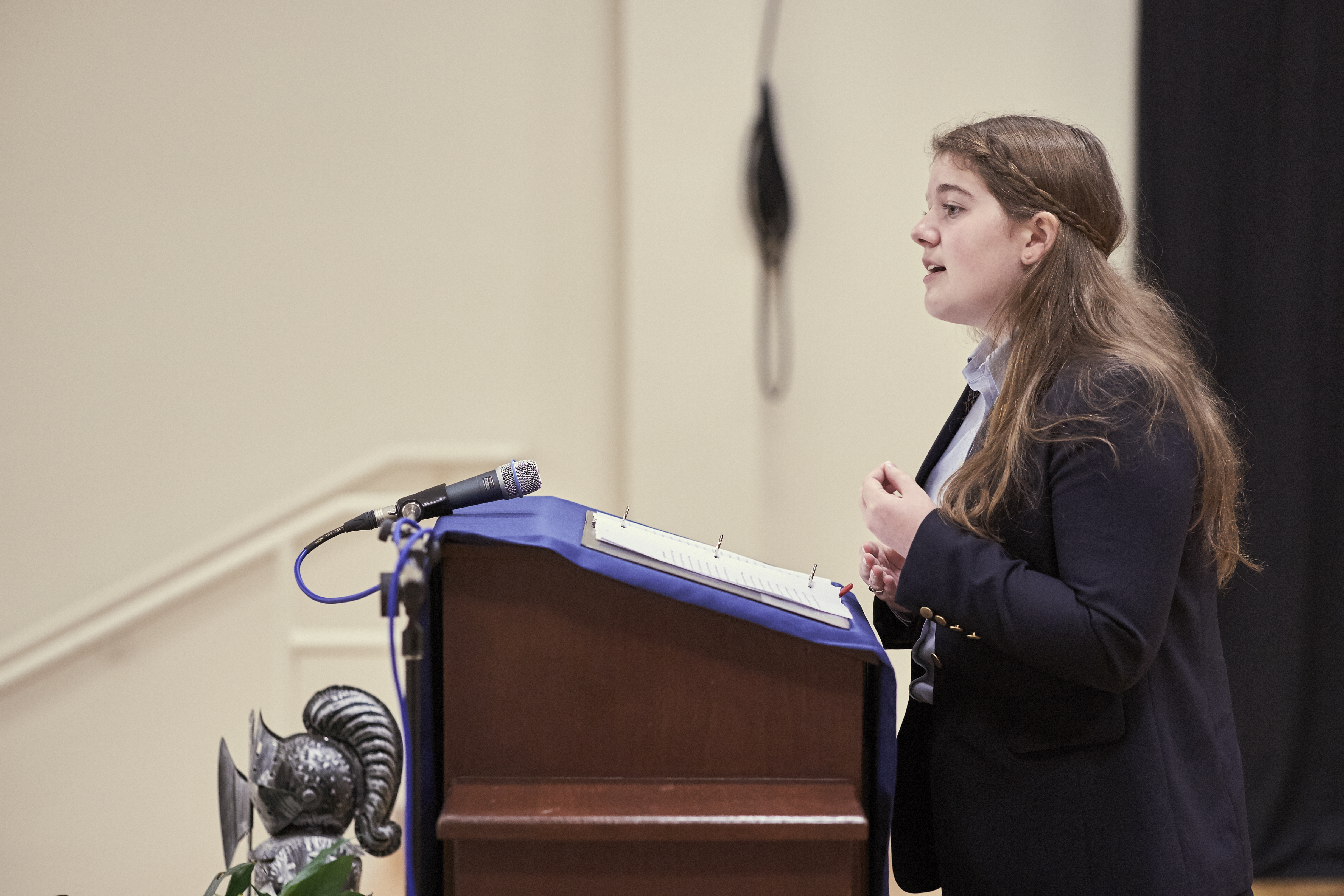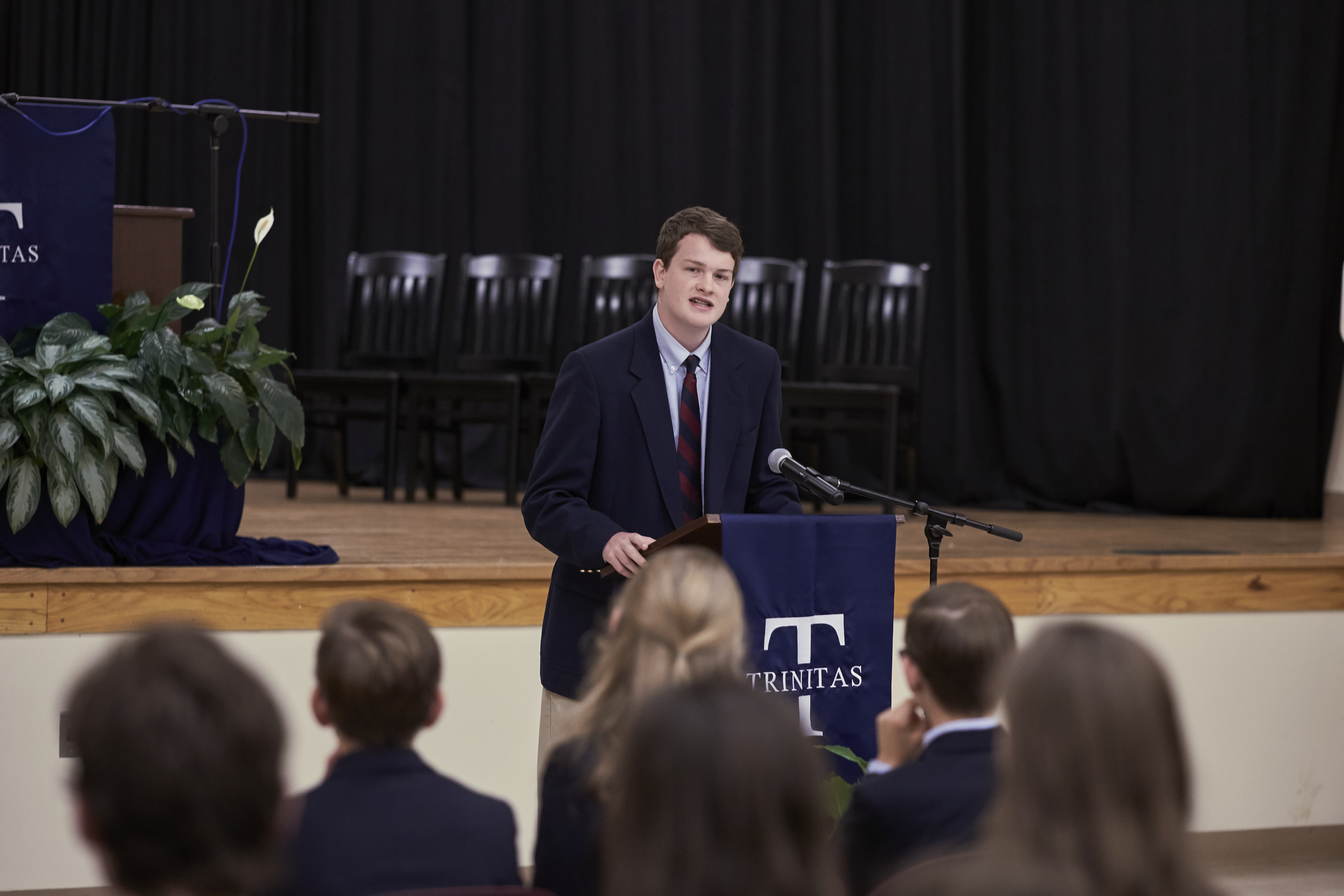Later this week, Trinitas will mark Grandparents Day with a program of Christmas-themed choral pieces and recitations. Although we've addressed the prominent role music plays at Trinitas in other blog posts, recitation of a short skit or some piece of excellent prose or poetry is also a long-standing tradition at Trinitas. Why do we do it? Why do we ask our students to recite in public? Recitation is a valuable and important aspect of classical education. It helps students develop excellent rhetorical skills, it gives them almost immediate feedback on their hard work, and it challenges their fear of speaking in public.
Why Recitation Should be Part of Every Child’s Education
Topics: Blog Posts, School Life, Classical Education, Public Speaking
St. John Chrysostom, Archbishop of Constantinople, was a fourth-century Church father known for his powerful and eloquent preaching and public speaking. It was his skill in oratory that earned him the name, “Chrysostomos,” or “Golden-mouthed.” And just as gold is both precious and weighty, Chrysostom’s words were not only beautiful, but always employed in the pastoral service of salvation and social justice.
Topics: Blog Posts, School Life, History, Public Speaking
Rather than a random group of dots, the various facets of education should connect like a column of ants traversing a picnic blanket. Last Friday, I had the privilege of watching junior kindergartners retelling four classic fairytales using student narration and finger puppets. Later that evening, I listened to three students present and defend their senior thesis projects. Contemplating these examples drawn from the beginning and end of a Trinitas education is worthwhile for thoughtful parents serious about the kind of education they want for their children.
Topics: Blog Posts, School Life, Classical Education, Thesis Projects, Public Speaking, Parent Involvement, Virtue
Recently I proposed that the classical school movement is seeking to preserve the heritage of western civilization, in part, by teaching and training good oratory skills. I also explained some of the ways Trinitas begins this teaching and training as early as kindergarten. If the beginning is, as I mentioned last week, as simple as teaching five-year-olds good eye contact and clear enunciation, then the end of that training is guiding eighteen-year-olds through the writing, presentation, and defense of a senior thesis. There are, of course, many, many varied components between those two stages but perhaps none as important and exciting as the John Chrysostom Oratory Competition.
Topics: Blog Posts, History, Classical Education, Public Speaking
From Ancient Greece to the founding of the United States, one mark of western civilization has been excellent oratory. From Pericles to Patrick Henry and John Chrysostom to Thomas Jefferson (with Demosthenes and Cicero thrown in for good measure), the roots of western civilization have been nourished for more than two-thousand years by those with the ability to articulate lofty ideals in a way that leads to both understanding and inspiration in the hearer. We could call them the Silver Tongues of the West. But the West isn’t what it used to be. Oratory now seems most often employed to convince us to spend money on some product or to vote for a particular candidate. Of course it has always been used in this way, but it seems that in times past, good oratory was more memorably used by men such as those mentioned above to convince others of good ideas, the kind of ideas that change the world for the better.
Topics: Blog Posts, History, Classical Education, Public Speaking



-2.png)



